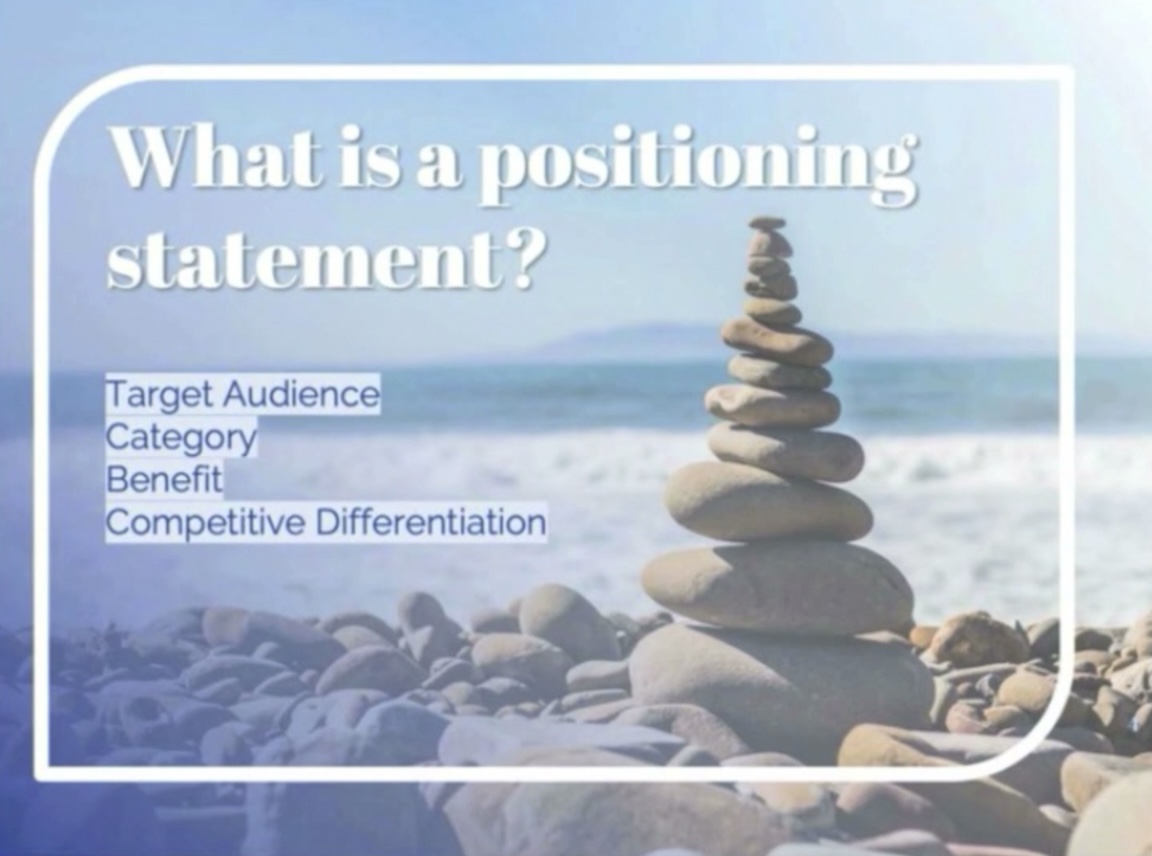Today’s the day to learn how to build a personal website! A website will help you establish yourself as a thought leader by creating a hub for your online marketing strategy. If you’re serious about making a difference in your field, a personal website is essential. Read on to learn how to create a purpose-driven website, build your authority and reach your target audience for true impact.
Write a Positioning Statement
The first step in creating a personal website is to write a positioning statement. A positioning statement is a description how your website fits in the larger landscape. Who is it for? How is it different from other websites?
Thinking through your positioning statement helps you define your niche. This involves thoroughly exploring your main topic online, with leading websites and individuals who operate in the same space. By critically examining how you’re different than others in the field based on your experience and resources, you can narrow your niche and consider a sub-niche. To make your website effective, you’ll also need to define your target audience. Examples could be policymakers, educators, businesses or consumers. By understanding who you are targeting, you be more relevant with your content.
Define Your Personal Website Goals
Next, you need to define your goals. What do you want people to do after they arrive at your website? You’ll want to design your website content and layout to encourage specific actions. One you understand where you want your visitors to go, you’ll create buttons and landing pages accordingly.
Ask yourself what you really want to happen after you build your personal website. Examples of goals could be to receive inquiries about speaking engagements, bookings for consultation meetings, or orders for your book. Decide on one main goal, and track the impact of supporting goals. If your main goal is to maximize form submissions, then a supporting goal could be your monthly website traffic from social media.
Outline a Digital Marketing Strategy
Once you’ve defined your goals, you need to outline a digital marketing strategy. This involves deciding which channels you’ll use to post your content online, and making your website the hub of your strategy. Retain your audience with an email newsletter and focus on producing content that can help people solve their problems.
Marketing Channels

Design your audience traffic flow so that all traffic leads back to your website. While a website is “owned media”, you have less control on social media platforms. They could kick you off of their platform without explanation or even go out of business. While there’s potential to see huge value from investing in marketing channels like social media, your website is a more secure place to retain value. Encourage people to sign up for your email newsletter. The old-fashioned subscriber email list is a way of retaining contact information for people who are interested in your message.
Content Strategy

Focus your topics within your niche. Your audience appreciate your dedication, and search engines will have an easier time understanding where your topical authority lies. Once you have dominated your niche, you can begin discussing related topics. Create and publish resources that people can actually use to solve their problems, like worksheets or checklists.
If you’re creating valuable content, then other sites could begin linking to it. Could you get an interviews with an industry thought leader? Could you conduct a survey and post your findings? Articles, infographics, videos and podcasts are all ways of reaching people with your message.
Define Your Personal Brand
Your personal brand can be your name or a brand name that reflects your niche. When choosing a domain name for your website, consider factors such as whether it is easy to remember, easy to spell, and is broad enough to allow growth. Investing in an aged domain that already has domain authority will boost your ability to rank for keywords. Spend time making this decision, as this domain will store the value that you build for it over time.
Build Your Personal Website!
Now it’s time to build your personal website! Elementor is my favorite website builder for many reasons. It’s one of the most widely used Wordpress builders, which means it’s well-supported and not disappearing anytime soon. Also, it’s easy to use its already-designed blocks to modularly build the perfect website without spending too much time constructing and tweaking. If you use their cloud plan, then they’ll take care of the hosting and backups for you as well. After making several websites piecing together cheap solutions, I came to recognize what a great value the Elementor personal website package is. Whatever your choice, choose a secure solution that can grow and evolve with your career.
Start with a simple, one-page design and a blog page. The header should include your brand name, a logo, and a menu. For a one-page site, menu links can lead to different sections on your homepage and to your blog page. Clearly describe your niche in the first section of your homepage. People should immediately understand what your website is about. Include a section that highlights recent or most important blog posts, a newsletter sign-up, and a contact form.
Build Authority as a Thought Leader
Take every opportunity to acquire backlinks to your site from reputable websites. Have publishers of your articles link back to your site, be a guest blogger for other websites, speak at institutions that will link you on their websites, and request links from organizations you’re affiliated with.
Collaborate with other organizations and figures in your niche. This could include NGOs, influencers, or other websites that are working towards similar goals. You can network your way to greater visibility and use your website as a vehicle.
The links to your website from other reputable sites will increase your Domain Authority, which is one of the ways you store value in your website. The higher your Domain Authority, the easier it will be for you to rank for topical keywords.
Stay the Course

Now you know how to build a personal website. This is a huge step in establishing your brand! With dedication, consistency and collaboration you can use your website to build authority. Start with a minimum viable product that you can evolve over time.
Nothing needs to be perfect before hitting the publish button. The important thing is to get it up so you can start building your audience and your authority. By keeping a focus on specific goals, you can create a website that establishes you as a topical authority in your niche.




